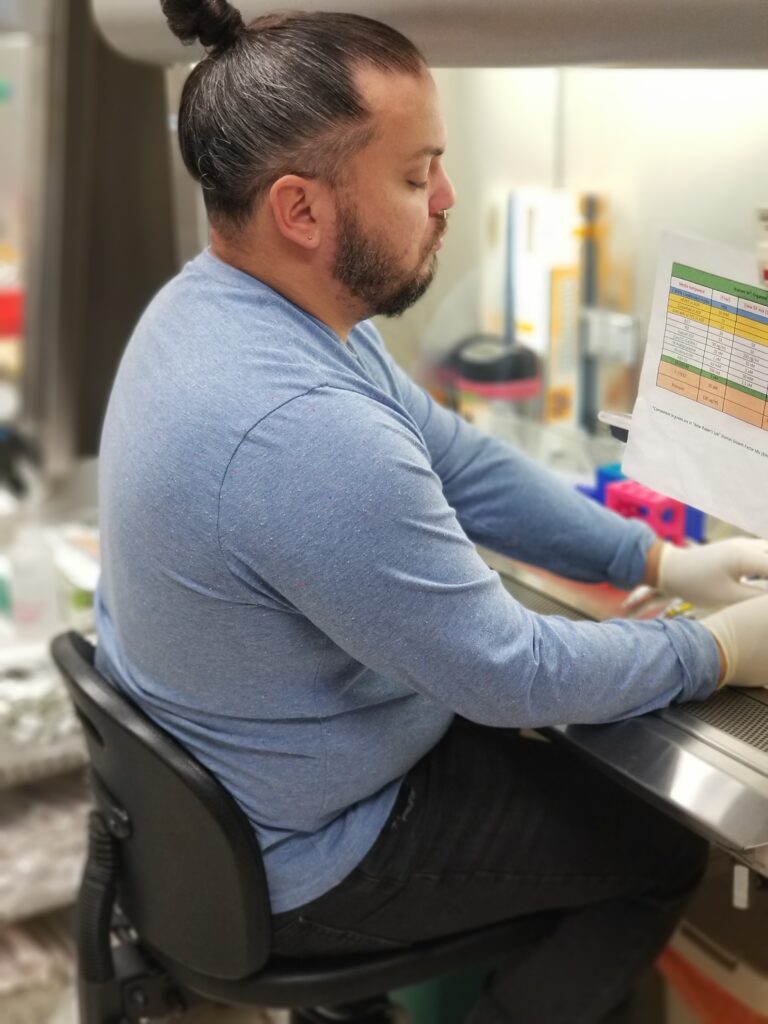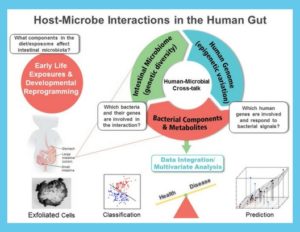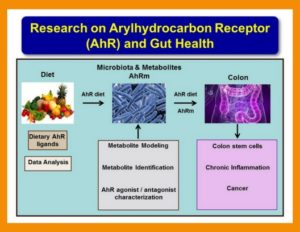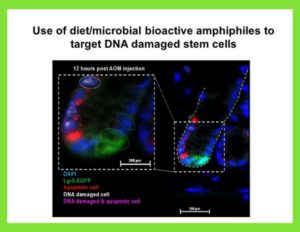Research
Research in the Chapkin lab focuses on dietary/microbial modulators related to the prevention of cancer and chronic inflammatory diseases. Our central goal is to (1) understand cancer chemoprevention at a fundamental level, and (2) to test pharmaceutical agents in combination with dietary/microbial (countermeasures to the Western diet) to more effectively improve gut health and reduce systemic chronic inflammation.
Since diet influences gut microbiota composition and metabolite production, to unravel the interrelationships among gut health and the structure of the gut microbial ecosystem, we are in the process of evaluating (using transgenic mouse, Drosophila models and humans) how the gut microbiome modulates intestinal cells, innate immune cells and tumors.
As part of this endeavor, we are modeling at the molecular level the dynamic relationship between diet and gut microbe-derived metabolites which modulate chronic inflammation and the hierarchical cellular organization of the intestine, e.g., stem cell niche. Work in the lab related to intestinal “phenotypic flexibility” falls into four specific areas:





